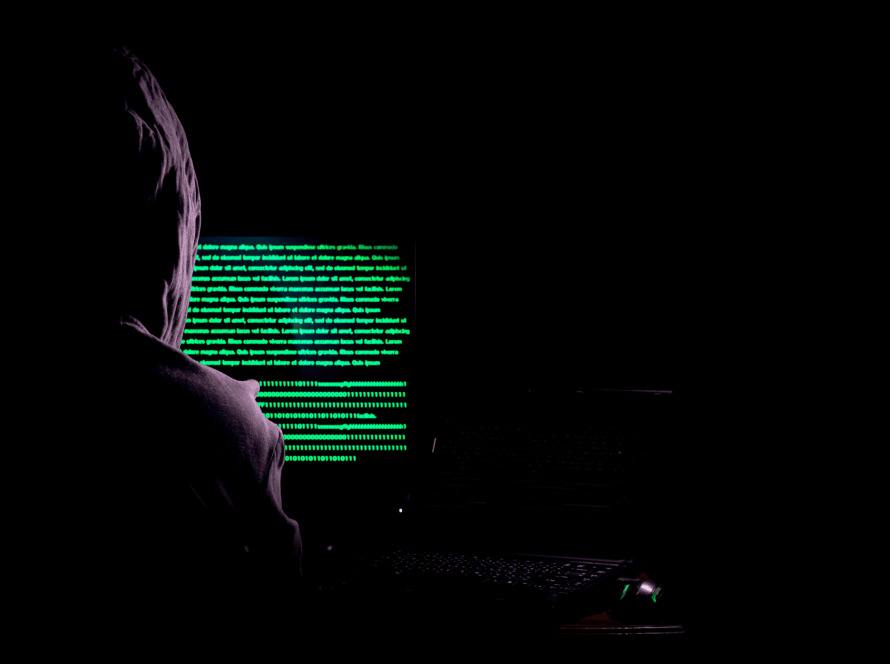Education fraud is a growing concern, with individuals fabricating credentials to gain an unfair advantage in the job market. This undermines the integrity of the education system and puts employers at risk of hiring unqualified candidates.
Imagine a world where fake diplomas and degrees become a thing of the past, and employers can easily and securely verify the qualifications of job applicants.
With blockchain, this vision can become a reality. Educational institutions can create a tamper-proof and decentralised system for verifying and storing education certificates.
From enhancing trust and transparency to streamlining the hiring process, we will explore how blockchain can revolutionise how we authenticate educational qualifications in this article.
What is Blockchain Technology?
At its core, blockchain1 is a decentralised, transparent, and secure digital ledger that records transactions across multiple computers or nodes.
Unlike traditional centralised databases, where a single authority controls the data, blockchain allows for peer-to-peer transactions without intermediaries.

The Technology Behind Blockchain
The technology behind blockchain2 is built on three key components: blocks, nodes, and cryptography. Each block represents a set of transactions, and once completed, it is added to the chain in chronological order.
Nodes, also known as computers or participants, maintain a copy of the blockchain and validate transactions. Cryptography ensures that the data stored in the blockchain is secure and cannot be tampered with.
Another key aspect of blockchain technology is transparency. All transactions recorded on the blockchain are visible to every participant, creating a transparent and auditable system. This transparency can help combat fraud and ensure the integrity of education certificates.
Additionally, blockchain technology eliminates the need for intermediaries in the verification process. Currently, employers or educational institutions often rely on third-party verification services to validate education certificates. With blockchain, the verification process can be streamlined, reducing costs and increasing efficiency.
Benefits of Using Blockchain for Verifying Education Certificates3
Increased Security & Transparency
One significant advantage is the increased security and transparency it provides.
With traditional methods, certificates can be easily forged or tampered with, leading to fraudulent claims of education.
In contrast, blockchain technology ensures that each certificate is securely stored in a decentralised and immutable ledger, eliminating the possibility of alteration or counterfeiting.
Enhanced Trust & Credibility
Another benefit of using blockchain for verifying education certificates is the enhanced trust and credibility it brings.
As certificates are recorded on the blockchain, employers, educational institutions, or other relevant parties can easily access and verify them.
This eliminates the need for tedious manual verification processes and reduces the risk of relying on falsified credentials.
Better Control of Educational Data
Blockchain offers individuals greater control over their own educational data.
Instead of relying on institutions or third-party providers to store and share their certificates, individuals can store their own credentials on the blockchain and choose who has access to them.
This puts the power back into the hands of the certificate holders and allows for seamless sharing of verified credentials across different platforms and applications.
Better Credential Standardisation
Lastly, using blockchain for verifying education certificates can contribute to the global standardisation of credentials.
As blockchain is a decentralised technology, it can facilitate cross-border verification and recognition of educational qualifications.
This is particularly beneficial for international students or professionals seeking employment or further education in different countries, as it eliminates the need for complex and time-consuming credential evaluation processes.
Challenges4 in Implementing Blockchain for Education Certificates
Lack of Standardisation
Currently, there is no universally accepted standard for education certificates, making it challenging to create a consistent and interoperable blockchain system.
Requires Collaboration Between Educational Institutions
Another challenge is the need for collaboration among educational institutions.
Implementing blockchain technology requires the cooperation of various stakeholders, including schools, colleges, universities, and certification authorities.
Achieving consensus and agreement on the implementation process and data-sharing protocols can be time-consuming and complex.
Scalability
Additionally, the scalability of blockchain systems can pose a challenge. As the number of education certificates increases, the blockchain network must be capable of handling the growing volume of data and transactions. This requires robust infrastructure and technical capabilities to support a large-scale implementation.
Potentially High Cost of Implementation
Implementing blockchain technology requires significant investment in infrastructure, software development, and ongoing maintenance. As blockchain implementation isn’t mainstream yet, the costs associated with it can be high.
Educational institutions and certification authorities must carefully consider the financial implications and weigh them against the potential benefits.

Potential Use Cases5 for Blockchain in Education Verification
1. Secure and Tamper-Proof Certificate Storage
Blockchain can provide a secure and tamper-proof platform for storing educational certificates.
Each certificate can be hashed and recorded on the blockchain, making it virtually impossible to alter or forge. This eliminates the need for physical certificates and reduces the risk of fraud.
2. Instant and Global Verification
With blockchain, verification of educational certificates can be done instantly and globally.
Instead of relying on manual processes or third-party verification services, employers and educational institutions can directly access the blockchain to verify the authenticity of a certificate. This eliminates delays and reduces administrative costs.
3. Enhanced Privacy and Data Protection
Blockchain technology allows for the encryption and secure storage of personal data.
With education verification, individuals can have control over their own data and decide who can access it. This ensures privacy and protects sensitive information from unauthorised access.
4. Efficient and Cost-Effective Credentialing
Blockchain can streamline the process of credentialing by eliminating the need for manual verification and authentication.
Educational institutions can issue digital certificates directly on the blockchain, reducing administrative costs and making the process more efficient. This also allows for easier transferability of credentials between institutions.
5. Lifelong learning and continuous education
Blockchain can facilitate the tracking of lifelong learning and continuous education.
Individuals can earn and store micro-credentials or digital badges on the blockchain, showcasing their ongoing professional development and skills acquisition. Employers can easily verify these credentials, enabling a more dynamic and adaptable workforce.
6. Combating Fake Degrees and Other Qualifications
Fake degrees are a significant concern in the education sector. Blockchain technology can help combat this issue by providing a transparent and immutable record of educational certificates.
For instance, a Malaysian university, University Sains Islam Malaysia (USIM)6 started using blockchain technology in 2021 to authenticate degrees through an app called Tasdiq Al-Syahadah (TAS). This app allows potential employers and relevant parties to verify the authenticity of graduates’ qualifications.
The initiative aims to prevent fraud involving fake degrees and protect the university’s reputation and integrity while reducing development costs.
Let Us Assist You With Improving Transparency on Your Educational Credentials
At Grayscale, we are committed to helping educational institutions and certification organisations improve transparency regarding their educational credentials.
Our blockchain-based solutions allow for secure and transparent storage of certificates and efficient verification of credentials.
Contact us today at enquiries@grayscale.my to learn more about how we can help you leverage blockchain technology for education verification.




